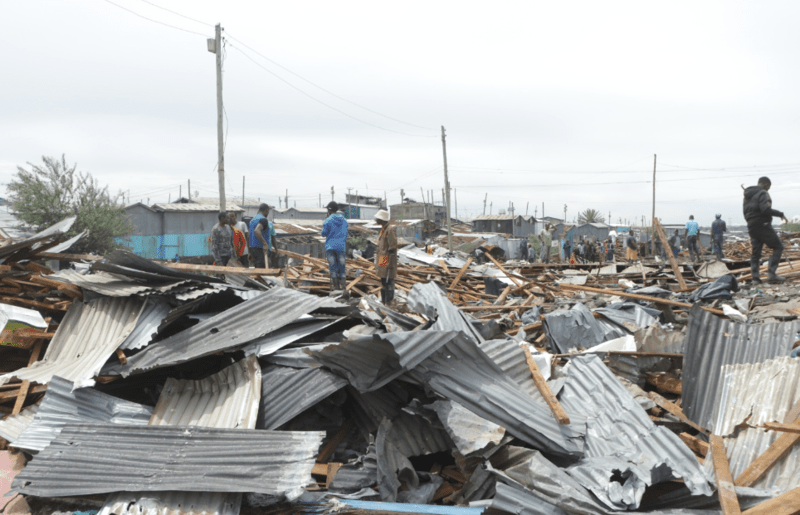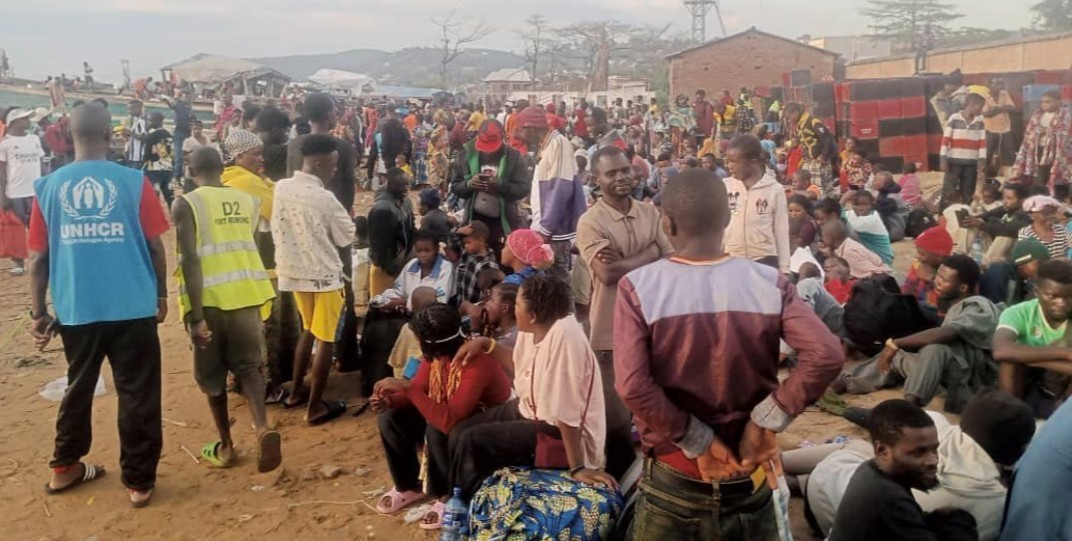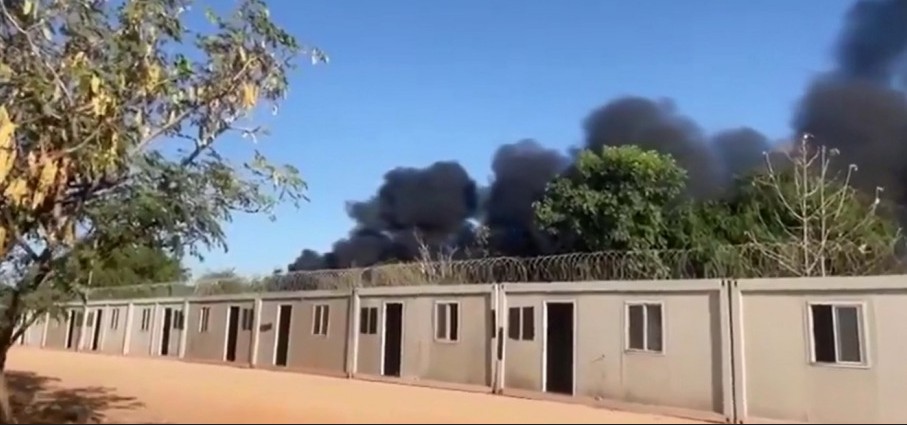Tears and ruins: Mukuru kwa Reuben residents speak out after forced evictions

The residents questioned the selective nature of the evacuations, pointing out disparities in treatment between slum dwellers and other residents facing similar risks.
A sombre mood engulfed Mukuru kwa Reuben in the aftermath of government-ordered demolitions that have left many residents homeless.
The residents, including Jane Kavutha, are reeling from shock and displacement. With her belongings piled beside her and her children clutched close, Jane sits outside on a stool, her gaze fixed on the ruins of what was once her neighbourhood.
More To Read
- Gaza faces humanitarian disaster with thousands trapped in flooded camps
- Death toll in Elgeyo Marakwet landslide hits 37, 11 people still missing
- Dozens killed, hundreds displaced as heavy rains batter several counties
- KeRRA warns of impassable roads as landslides kill 15 people in Elgeyo Marakwet
- Severe flooding affects over 960,000 in South Sudan: UN
- How blocked drainage systems, open sewers threaten lives, businesses in Eastleigh
Jane's home was among those demolished in a recent crackdown on structures deemed illegally built on riparian lands and too close to the river banks. The government cites flood risk mitigation as the rationale behind the demolitions, but residents like Jane claim there was no prior warning.
"They came and tore everything down," Jane recounts with a mix of frustration and despair. "No notice, no warning. It's like they didn't consider that we have nowhere else to turn."
The demolitions, initiated on May 3, have uprooted thousands of families in Mukuru kwa Reuben, an area known for its densely populated and precarious living conditions.
For many displaced individuals, the aftermath leaves them with only the clothes on their backs, their dwellings reduced to rubble in what Jane describes as a "heartless act."
Local authorities assert the demolitions are essential to avert disasters during the rainy season, notorious for severe flooding in areas adjacent to water bodies. However, the abrupt nature of the relocations has drawn sharp criticism from human rights organisations and community leaders.
 Some of the demolished structures in Mukuru Kwa Reuben. (Photo: Justine Ondieki)
Some of the demolished structures in Mukuru Kwa Reuben. (Photo: Justine Ondieki)
Judith Amondi also says that they were not given any notice. They woke up and heard people screaming and that's how they all started running to pick up their children and belongings in the houses.
"When we asked what was happening, they said we were given 24 hours to relocate but what can we do in 24 hours? When are we supposed to look for houses for our children or even the money to rent out in such a short time? I was unable to recover most of my belongings in my house. Why does this government not care about the children?" Judith posed.
Florence Onyango questions the selective nature of the evacuations, pointing out disparities in treatment between slum dwellers and other residents facing similar risks.
"Why target only the poor? Why not evacuate banks or high-rise buildings vulnerable to flooding? Are we deemed less worthy?" Florence questions.
"The government gave us a mere 48-hour notice. We're hungry, penniless, and forced to endure cold nights. The timing couldn't be worse, especially with doctors on strike and no recourse for our ailing children. We acknowledge the risks of living near the river, but a month's notice would have been humane," she added.
 A bulldozer is being used to demolish alleged illegal structures in Mukuru Kwa Reuben. (Photo: Justine Ondieki)
A bulldozer is being used to demolish alleged illegal structures in Mukuru Kwa Reuben. (Photo: Justine Ondieki)
Vivian Ndanu describes the distress among landlords, some bedridden from stress and unpreparedness. She took preemptive action, demolishing her home to salvage valuables for her family's survival.
"Many landlords are overwhelmed, some even hospitalized. As a widow with five children, I had to salvage what I could to sustain us," Vivian said.
Rosemary Ayuma highlights the exploitation of the situation by landlords, who have hiked rents amid the crisis, exacerbating the plight of residents.
"As rents skyrocket, landlords capitalise on our desperation," Rosemary said.
Top Stories Today














































